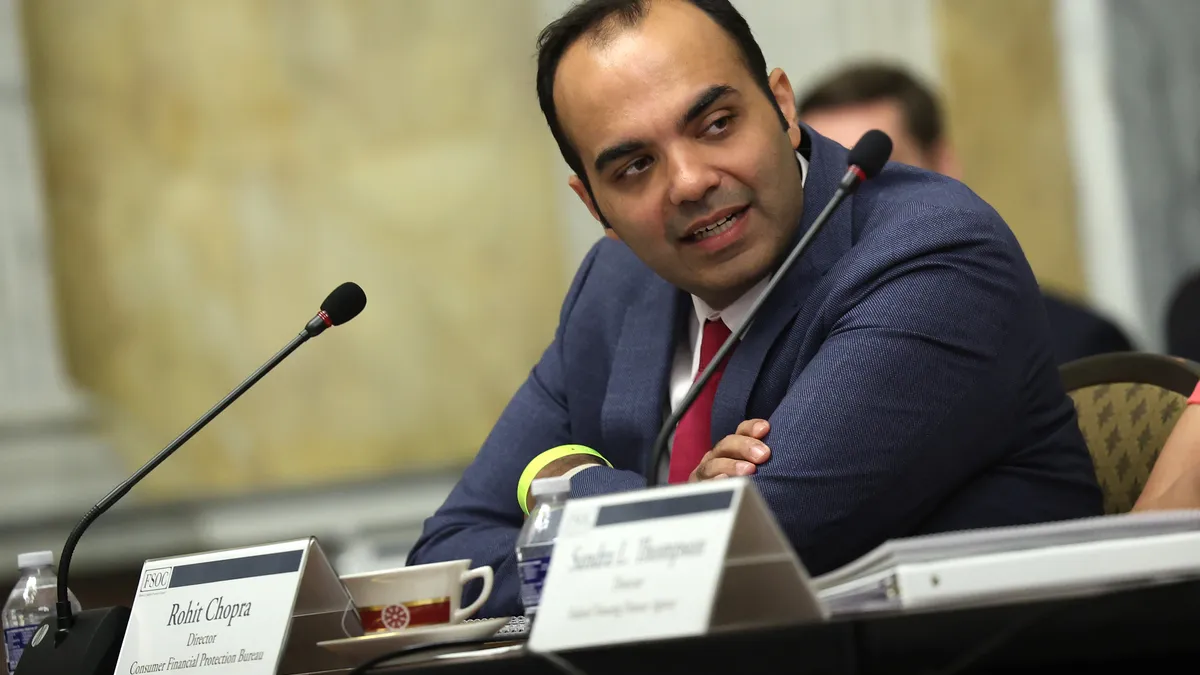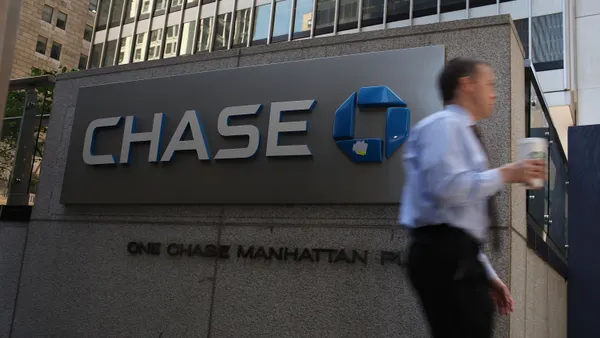Dive Brief:
- The Consumer Financial Protection Bureau has issued updated procedures for banks and fintechs seeking special regulatory treatment, such as a no-action letter or regulatory sandbox, as they pursue innovative products or services.
- After walking back previous policies in 2022, the bureau is once again accepting applications for sandbox approvals and no-action letters as of Friday, according to policy statements posted in the Federal Register.
- Approvals will be granted for “innovations that solve unmet needs” in consumer financial services markets, and the CFPB’s procedures “seek to increase transparency and reduce favoritism for individual companies,” according to a Wednesday news release.
Dive Insight:
The latest shift comes just over a week before the Trump administration is set to retake the White House.
During Donald Trump’s first term, the CFPB’s Office of Innovation allowed companies to apply for no-action letters that served as protective agreements, enabling them to develop specific products under a safe harbor the bureau labeled a sandbox.
But in May 2022, with Director Rohit Chopra at the helm of the CFPB, the bureau scrapped the no-action letter and sandbox policies, saying they were “ineffective.” Some companies “made public statements indicating that the Bureau had conferred benefits upon them that [it] expressly did not,” the CFPB said at the time.
The CFPB recast those initiatives with an eye toward promoting competition, establishing an Office of Competition and Innovation that held “incubation events.” The new office aimed to ensure large banks didn’t exploit their market powers and wanted to use competition from startups to pressure bigger incumbents, the bureau said in 2022.
The sandbox program was seldom used, but the CFPB’s move caused some disruption for the companies that did take advantage of it, such as earned wage access company Payactiv and alternative lender Upstart.
In this week’s policy statements, the bureau mentioned each of those companies when noting it experienced “a number of potential abuses and challenges” with the prior no-action letter and sandbox policies.
Updated conditions, designed to promote innovation, competition, ethics and transparency, are aimed at correcting these “shortcomings,” the CFPB said.
Notably, the CFPB’s updates specify the bureau won’t consider applications for sandbox approvals or no-action letters from former CFPB attorneys representing firms as outside counsel “to avoid ethical conflicts.”
Additionally, “to prevent bait-and-switch negotiation tactics” under the prior no-action letter and sandbox policies, where companies negotiated terms with the CFPB and then altered products or services, no-action letters and approvals “will automatically be rescinded when recipients change their product or service so that it no longer fits the description” outlined in the no-action letter or sandbox approval, the CFPB said.
To maximize competition, the CFPB will reach out to applicant competitors to invite them to apply for the same approval topic, the bureau said. The CFPB won’t approve a no-action letter or sandbox approval on a topic for a single firm, and companies are prohibited from advertising receipt of either.
Given that the change in administration is just days away, Eamonn Moran, a financial services attorney and partner at law firm Holland & Knight, said he doesn’t expect these updated procedures to stick around.
“While I don’t think this particular iteration of the policy will have lasting power, I do expect that some other version of it will,” Moran, a former CFPB attorney, said in an email. He anticipates “a revamping” of the Trump-era Office of Innovation, he said.
Under Trump 2.0, Moran said he expects a “greater emphasis on innovation and less emphasis on competition in this next phase, which would be a likely return to what we saw from 2017-2021.”














